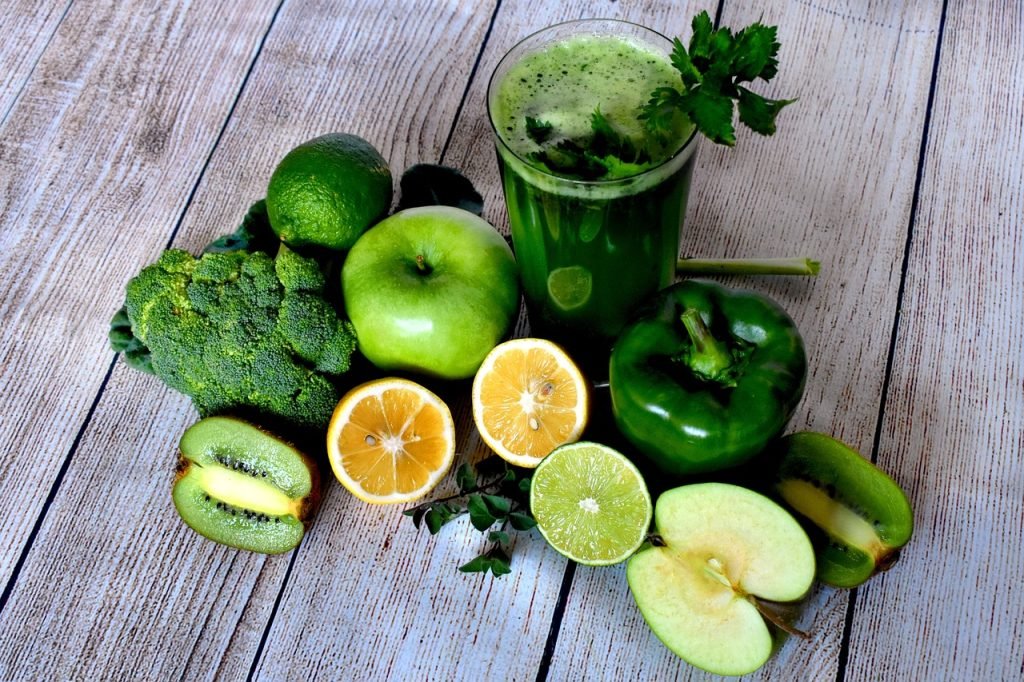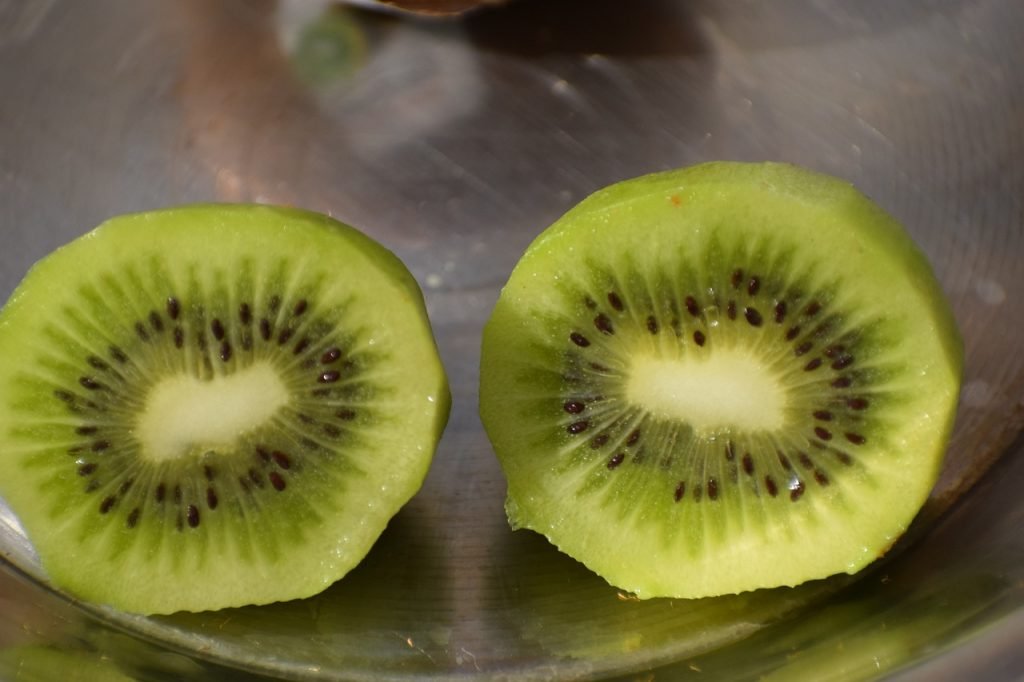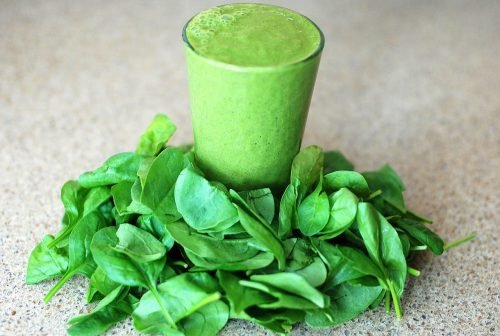What Are The Best Greens For Smoothies?
Are you looking for the ultimate smoothie experience, packed with all the nutrients and vibrancy nature has to offer? If so, then you’ve come to the right place! In this article, we will explore the world of greens and uncover the absolute best ones to elevate your smoothie game. From spinach to kale, and everything in between, we’ll guide you through the leafy paradise, ensuring your taste buds and body thank you with every sip. So get ready to embark on a journey of flavor and wellness as we reveal the secret greens that will take your smoothies to new heights!

Leafy Greens
Spinach
Spinach is one of the best greens to include in your smoothies. It has a mild taste that easily blends with other ingredients, making it a versatile choice. Packed with nutrients like iron, calcium, and vitamins A and C, spinach can give your smoothie a nutrient boost without overpowering its flavor. It also adds a vibrant green color, making your smoothie visually appealing.
Kale
When it comes to nutritional powerhouse greens, kale is hard to beat. Rich in antioxidants, fiber, and vitamins K, A, and C, kale is a fantastic addition to your smoothie. While its strong taste may not be for everyone, blending it in a smoothie helps to mellow out the flavor. You can use either green curly kale or its milder cousin, Lacinato kale, depending on your taste preferences.
Swiss Chard
Swiss chard is often overlooked when it comes to smoothie greens, but it is definitely worth considering. With its vibrant colors and slightly bitter taste, Swiss chard adds a unique twist to your smoothie. It is a great source of vitamins K and A, as well as potassium and fiber. Don’t let its bitter taste scare you away – when combined with sweet fruits or berries, Swiss chard can create a well-balanced and nutritious smoothie.
Cruciferous Vegetables
Broccoli
Broccoli may not be the first thing that comes to mind when making a smoothie, but it can add a surprising nutritional boost. Packed with vitamins C and K, as well as fiber, folate, and antioxidants, broccoli brings a plethora of health benefits to your smoothie. Although its strong flavor might be an acquired taste, blending it with sweeter ingredients like pineapple or apple can help balance out the taste.
Cabbage
Cabbage is another cruciferous vegetable that can be a great addition to your smoothies. It comes in different varieties, such as green, red, and savoy cabbage, each with its own unique taste and texture. Cabbage is low in calories but high in vitamins C and K, as well as antioxidants. When properly blended, cabbage can give your smoothie a creamy consistency without overwhelming the flavor.
Cauliflower
Although commonly used as a vegetable side dish, cauliflower can also be a valuable addition to your smoothies. It may not add vibrant color to your drink, but it offers a neutral taste that allows other ingredients to shine. Cauliflower is known for its high vitamin C content, as well as its fiber and antioxidant properties. When blended, it adds a creamy texture to your smoothie without altering the taste.
Herbs
Mint
Mint is a refreshing herb that not only enhances the flavor of your smoothies but also provides numerous health benefits. Known for its soothing digestive properties, mint can aid in digestion and ease an upset stomach. It adds a cool and invigorating taste to your smoothie, especially when combined with citrus fruits or berries. Additionally, mint contains antioxidants and can help freshen your breath.
Parsley
Parsley is not just a garnish – it can be a fantastic addition to your smoothies. Packed with vitamins A, C, and K, as well as iron and antioxidants, parsley provides a range of health benefits. Its distinctive taste adds a slightly earthy and herbaceous flavor to your smoothie. It pairs well with fruits like pineapple or apple and can help detoxify your body due to its high chlorophyll content.
Cilantro
Cilantro, also known as coriander, is a herb commonly used in various culinary dishes. It has a unique flavor profile that can be polarizing – either you love it or you hate it. If you enjoy its pungent, citrusy taste, cilantro can be a wonderful addition to your smoothies. It is rich in vitamins K, A, and C, as well as antioxidants. When used in moderation, cilantro can give your smoothie a refreshing twist.
Microgreens
Sunflower Sprouts
Sunflower sprouts are baby sunflower plants that are harvested just after they develop their first leaves. Despite their tiny size, they are packed with nutrients. Sunflower sprouts are an excellent source of vitamins B, C, and E, as well as minerals like magnesium and potassium. They also contain beneficial plant compounds, such as chlorophyll and antioxidants. Adding sunflower sprouts to your smoothies can provide a fresh and slightly nutty flavor.
Pea Shoots
Pea shoots are the tender, young stems and leaves of the pea plant. They have a delicate flavor profile with hints of sweetness and are loaded with vitamins A, C, and K, as well as folate. Pea shoots are also rich in antioxidants and beneficial plant compounds that support overall health. Including pea shoots in your smoothies can add a subtly sweet taste and contribute to their nutritional value.
Radish Sprouts

Radish sprouts, often overlooked, can bring a peppery kick to your smoothies. Despite their small size, they pack a punch in terms of flavor and nutrients. Radish sprouts are an abundant source of vitamins C and K, as well as antioxidants. They can help add zing to your smoothie and provide a satisfying crunch. Pairing radish sprouts with fruit or cucumber can help balance out their peppery taste.
Seaweed
Spirulina
Spirulina is a type of blue-green algae that is often sold as a supplement due to its exceptional nutritional profile. It is rich in protein, vitamins, minerals, and antioxidants. Adding spirulina to your smoothies can provide a vibrant green color and a slightly earthy and mineral taste. It is particularly beneficial for its high iron and vitamin B12 content, making it suitable for vegetarians and vegans.
Chlorella
Chlorella is another type of freshwater algae that offers numerous health benefits. It is loaded with vitamins A, C, and K, as well as iron and antioxidants. Chlorella also contains a unique compound called chlorophyll, known for its detoxifying properties. Incorporating chlorella into your smoothies can give them a rich green color and a mildly earthy taste.
Dulse
Dulse is a type of red seaweed that can be a flavorful addition to your smoothies. It has a distinct umami taste and provides a good source of vitamins A, B, C, and E, as well as minerals like iodine, iron, and potassium. Dulse can contribute a savory note to your smoothie, especially when paired with ingredients like tomato and cucumber. It is also suitable for individuals following a plant-based or vegetarian diet.
Collard Greens
Collard greens are often associated with traditional Southern cooking, but they deserve a place in your smoothie as well. These large, dark green leaves are rich in vitamins K, A, and C, as well as calcium, fiber, and antioxidants. Collard greens have a slightly bitter taste, but when combined with sweet fruits like pineapple or mango, they create a well-balanced and nutritious smoothie. They also blend well with creamy ingredients like avocado or coconut milk.

Watercress
Watercress is a leafy green with a peppery taste, similar to arugula. It is packed with vitamins K, C, and A, as well as antioxidants. Watercress is known for its high nutrient density and potential health benefits, including promoting heart health and supporting the immune system. Incorporating watercress into your smoothie can add a unique, spicy note that pairs well with fruits like citrus or apple.
Beet Greens
Beet greens are the leafy tops of the beetroot and often get discarded, despite having excellent nutritional value. They are rich in vitamins A, K, and C, as well as iron, calcium, and fiber. Beet greens have a slightly earthy taste that complements the sweetness of fruits in smoothies. Including beet greens in your smoothie not only reduces waste but also adds a beautiful green color and valuable nutrients.
Arugula
Arugula, also known as rocket, is a leafy green with a distinct peppery and slightly nutty flavor. It is a great source of vitamins A, C, and K, as well as folate and antioxidants. Incorporating arugula into your smoothie can give it a zesty kick, especially when combined with fruits like orange or pineapple. Arugula adds a nice complexity to the overall taste and boosts the nutritional value of your smoothie.
Dandelion Greens
Dandelion greens may be considered a pesky weed in your garden, but they offer significant health benefits. They are rich in vitamins A, C, and K, as well as calcium, iron, and antioxidants. Dandelion greens have a slightly bitter taste, but when blended with fruits like banana or berries, they can create a balanced and nutritious smoothie. They are particularly known for their potential liver-detoxifying properties and promoting digestion.
So, next time you whip up a delicious smoothie, don’t forget to include a serving of these fantastic greens. Whether you opt for the familiar spinach and kale or venture into more unique options like seaweed and microgreens, your taste buds and your body will thank you. Experiment with different combinations to find your favorite green smoothie recipe and enjoy the myriad of health benefits these greens have to offer. Get creative, blend away, and sip your way to a healthier, greener lifestyle!




